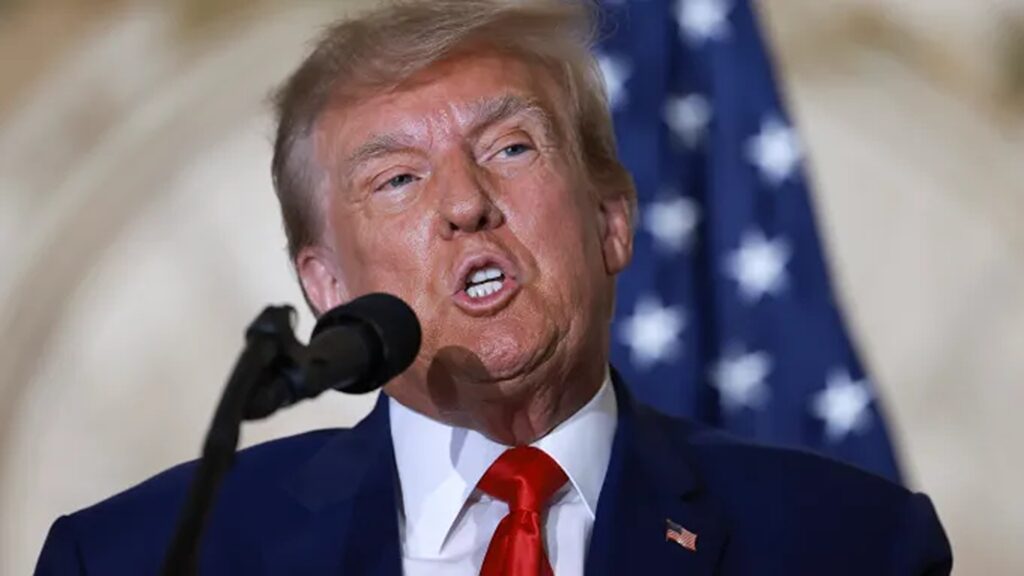Donald Trump, in a speech in Michigan, used highly derogatory language to refer to immigrants illegally in the United States, labeling them as “animals” and “not human.”
This speech is part of a pattern of incendiary rhetoric that Trump has utilized throughout his political career.
During this event, attended by several law enforcement officers, Trump emphasized the threat of violence and chaos he believes would engulf America should he lose the upcoming election on November 5.
Echoing a similarly grim outlook, Trump later addressed an audience in Green Bay, Wisconsin, framing the 2024 election as the country’s “last battle.”
Highlighting the case of Laken Riley, a nursing student allegedly killed by an illegal immigrant, Trump disregarded calls from Democrats to refrain from dehumanizing language, asserting, “No, they’re not humans, they’re animals.”
In Grand Rapids, Michigan, Trump claimed to have met with the family of Ruby Garcia, a 25-year-old allegedly murdered by an illegal immigrant, a claim contested by Garcia’s sister, who denied any such interaction.
Trump’s speeches often argue that illegal immigrants are criminals deliberately sent from Latin America, despite research indicating that illegal immigrants do not commit violent crimes at a higher rate than native-born citizens.
Trump’s rhetoric has drawn criticism from Democratic President Joe Biden, who accuses him of stoking division, hate, and violence.
Biden’s campaign has highlighted Trump’s opposition to legislative efforts aimed at strengthening border security and mitigating illegal immigration.
Amidst these controversies, Trump’s campaign uses the tragic murders of individuals like Garcia to highlight issues of violent crime and immigration, aiming to resonate with voters’ concerns.
In Wisconsin, Trump promised to halt the “plunder, rape, slaughter, and destruction” of American communities, warning that failure in the forthcoming election could spell the end for the country.
This apocalyptic vision underlines the high stakes Trump attributes to the election outcomes in key swing states like Michigan and Wisconsin, where narrow margins in previous elections suggest fierce contests ahead.
Both Trump and Biden, having secured their respective nominations, continue their campaigns, with the upcoming Wisconsin primary providing an opportunity for protest votes by Democrats dissatisfied with Biden’s policies, particularly his stance on international conflicts.
This political maneuvering reflects broader strategies as each camp seeks to mobilize support in anticipation of a closely contested election.
